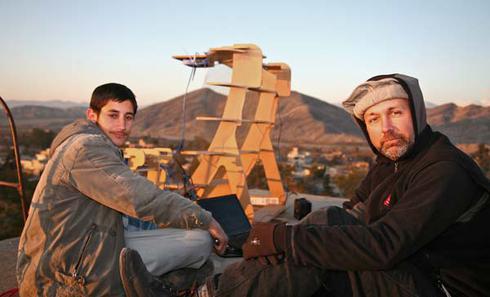Afghans Make DIY Wi-Fi With Trash
Where there’s a will, there’s a way. Residents of Jalalabad, Afghanistan, supported by the National Science Foundation, have managed to rig up some gigantic Wi-Fi transmitters using only what they could finding hanging around. The FabFi network, as it’s called, is staggeringly efficient considering it’s transmitters are constructed of boards, bottles, plastic tubs, the occasional wire and some off the shelf electronics. To put things in perspective, your average wireless router will operate at about 22Mbps real throughput for an area of a few feet on a good day. The longest connection in the FabFi network is a whopping 2.41 miles with a real throughput of 11.5 Mbps, an amazing feat considering the operative distance is several orders of magnitude larger.
Surprisingly enough, these transmitter nodes are also relatively inexpensive. Fast Company says that one of these nodes, which can serve an entire community, can be made for approximately $60 dollars worth of everyday materials. Needless to say (I’ll say it anyway) this technology could have a revolutionary effect on overall access to broadband internet. While this naturally has a practical application in war-torn or third world countries, for good or for evil, it could also be put to use in rural portions of the U.S. or Canada, where conventional broadband is prohibitive. Maybe someday, everyone will finally have a connection suitable for playing Team Fortress 2.
(Insteading via Shareable)
Have a tip we should know? tips@themarysue.com
